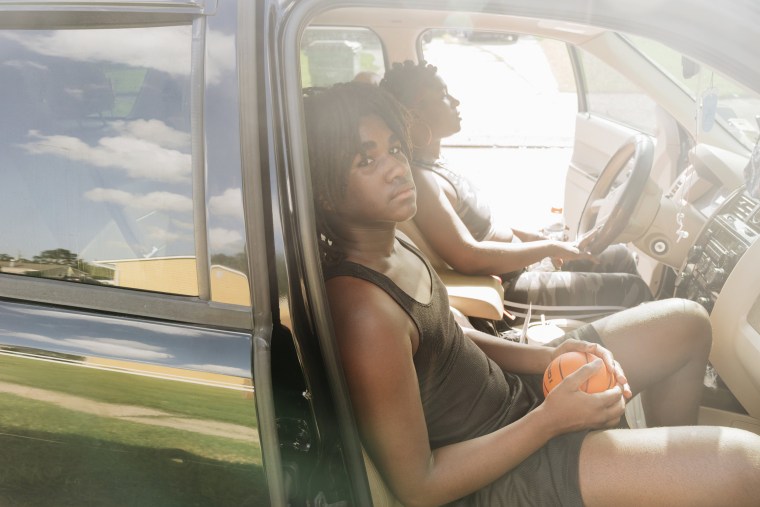JEFFERSON PARISH, La. — When Tiffany McGee picked up her phone one Friday night in March, she received news no mother is prepared to hear. Her 14-year-old son, Tre'mall, had been shot and was at the hospital.
Speeding across the bridge toward the east bank of Jefferson Parish, a New Orleans suburb, McGee prayed that her son was still breathing. When she arrived at the hospital, a doctor assured her Tre'mall was alive.
A detective was also there. He told her she could not see her son that night but said little else, McGee recalled.
She left the hospital thinking Tre'mall had been a victim of street violence. Only later that night, by accident, did she find out that the bullet that had cut through her son's shoulder and left arm had been fired by a deputy with the Jefferson Parish Sheriff's Office.
"No one said anything," McGee said. "No one spoke up to say an officer shot my child."
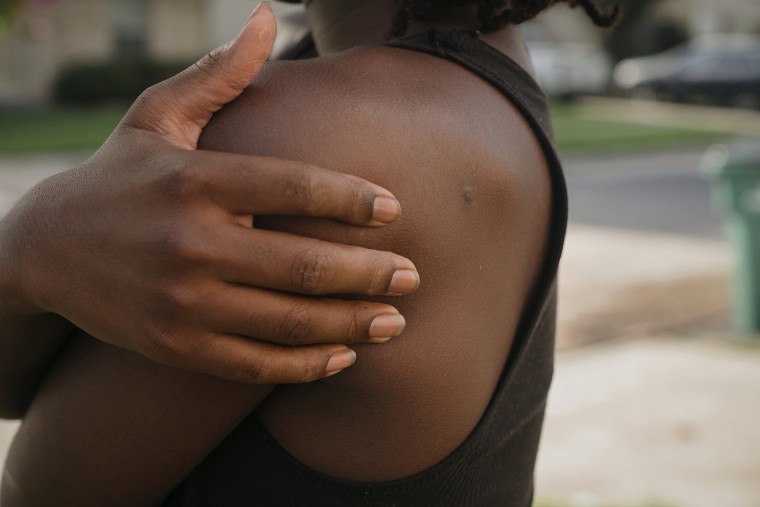
The public silence lasted months.
Jefferson Parish authorities didn't publicly disclose that a deputy had shot a teenager until late June, more than three months later, when Sheriff Joe Lopinto was asked about the incident at a news conference.
Since then, Lopinto has offered little more, saying the state's child privacy laws prevent his office from commenting on cases involving juveniles. He declined NBC News' request for an interview.
The Jefferson Parish Sheriff's Office's initial report on the incident, viewed by NBC News, describes in detail a pursuit of a car stolen days before and the search for the teens riding in it, but makes no mention of a deputy-involved shooting, or that anyone was taken to the hospital.
Nearly four months after the shooting, the list of what Tiffany McGee still does not know runs long. The deputy's name. Those of the other officers. Why no one told her what happened that night. Whether anyone will be held to account.
Tre'mall, too, has questions.
"Why'd you shoot me, sir?" he said. "What's the point?"
'I thought we had honesty'
Sheriffs hold extraordinary power in Louisiana, as across much of the South. They not only enforce law on the streets, but often run the jails, impose fines and collect taxes. They are accountable to their voters, who often re-elect them for decades, but are subject to far less oversight than many municipal police departments, experts say.
Harry Lee, who was the sheriff in Jefferson Parish for 28 years and died in 2007, once described the job as the "closest thing there is to being a king."
In the wake of national protests triggered by the death of George Floyd in Minneapolis, critics of the sheriff's office have grown louder, staging rallies in a parish unaccustomed to picketing and marches. They point to the failure to report the teen's shooting as emblematic of its lack of transparency, particularly when it comes to use of force against Black residents.
"I thought we had honesty," said Gaylor Spiller, the head of the parish's NAACP chapter. "This 14-year-old boy that they kept hidden, it's very telling."
While state law bars officials from naming children arrested and charged with nonviolent crimes, juvenile law experts said law enforcement across the state routinely share details of cases without naming them. The practice is similar in other states including New York, California and Ohio.
"To deny the existence or not confirm a deputy shot someone in an arrest is gaslighting, pure and simple," said Hector Linares, a longtime juvenile public defense attorney now at Loyola University College of Law. "If the facts were favorable to them, they'd be shouting it."
One of the state's largest and best resourced offices, the Jefferson Parish Sheriff's Office has its own crime lab, helicopter and a raft of military-grade equipment, including BearCat armored tanks it has rolled out in recent protests.
But it has steadfastly refused to adopt body-worn cameras, now routine in the New Orleans Police Department, right next door. Lopinto says maintaining video on 300,000 calls a year, and 800 deputies, would cost millions.
That's one reason questions linger about many of the use of force incidents in the majority-white parish, which have disproportionately left people of color dead.
At least 12 men and boys have died during an arrest or pursuit by the Jefferson Parish Sheriff's Office since 2015, according to an NBC News review of news articles and documents.
All were Black or Latino. Three were under the age of 18.
In a case with echoes of the killing of George Floyd, Keevan Robinson, 22, was asphyxiated in 2018 by a Jefferson Parish Sheriff Office narcotics officer who restrained him by "draping his shin over Robinson's neck," according to an investigation report by the sheriff's office, which found officers did not violate department policy. This week, the Jefferson Parish district attorney declined to bring charges against the officers.
Experts caution that it's difficult to judge a case without all the facts. The question of whether a shooting is justified, much less criminal, can be answered only with a thorough investigation.
"One little detail can change the whole picture," said Emanuel Kapelsohn, a use of force expert in Pennsylvania.
But certain policies in the parish highlight the wide deference the sheriff's office gives to those who carry a badge.
At least three of the 12 men died after Jefferson Parish deputies shot at a vehicle they said was moving toward them in a threatening manner, which is permitted under the agency's use of force policies, reviewed by NBC News.
The sheriff's office did not respond to a detailed list of questions from NBC News about the McGee case, the 12 deaths, use of force policies and body-worn cameras.
The New Orleans Police Department prohibits its officers from shooting from or at a moving vehicle unless its occupants are using deadly force other than the car itself.
As part of a federal consent decree, the New Orleans Police Department also bars its officers from high-speed chases unless suspects are wanted for something violent, or their escape threatens someone else's life.
Jefferson Parish has no such policy, which was one reason deputies encountered Tre'mall McGee that night in March.
'I got shot'
The sheriff's office and the Jefferson Parish district attorney declined to comment on the events that led to Tre'mall's shooting, citing privacy restrictions.
The following account was pieced together from interviews with the McGee family, the father of other boys there that night, accounts from their attorneys, conversations with neighbors and a review of documents.
On the night of March 20, Tre'mall was hanging out with friends, including Ineis O'Quinn, 19, and his 16-year-old brother, Nijel Simmons. A friend picked them up in a black Nissan Maxima.
Tre'mall said he did not know it had been stolen several days before. It was not clear if the others in the car were aware.
As they were driving through the town of Westwego, they saw police lights in the rear view. The driver, Jacolby Simmons, 18, sped off, and deputies followed. The driver ultimately screeched to a halt.
"Everybody started running," said Tre'mall. "So I ran."
Tre'mall and Nijel hopped a fence into the backyard of a small home at the end of the block. Nijel hid under a shed. Tre'mall, who has no criminal record, was on his stomach, trying to crawl under the shed when officers arrived.
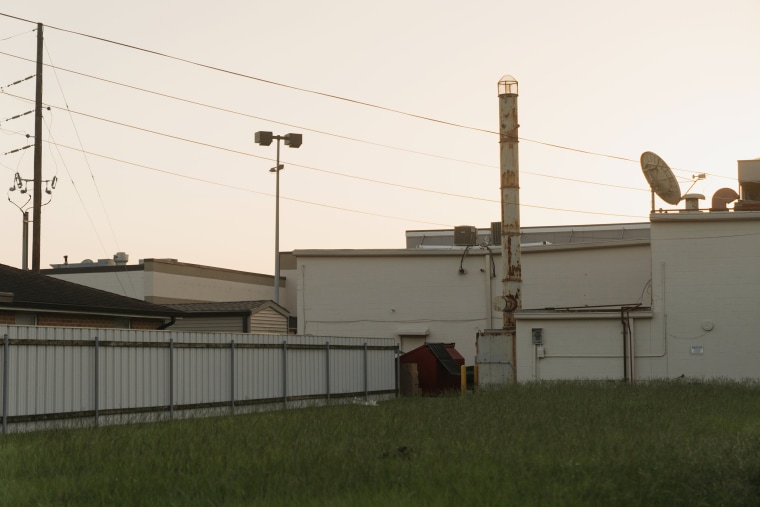
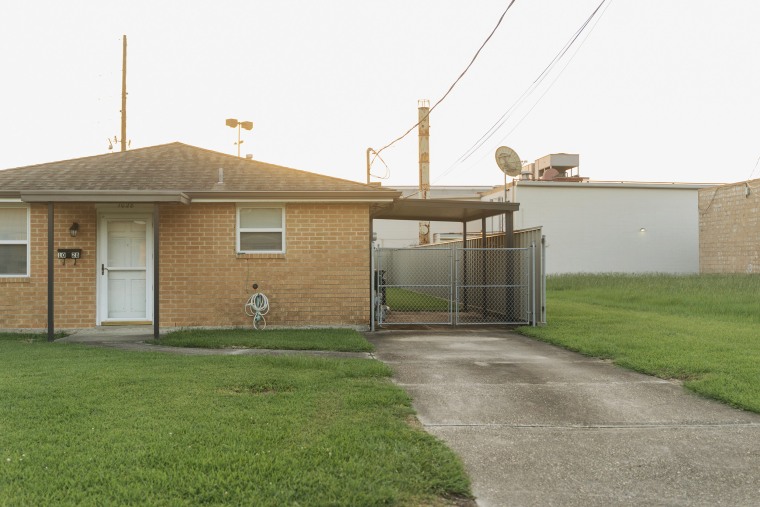
Tre'mall remembers lights and yelling and men in uniforms, several of them standing near him. One deputy told him to stop moving, he recalled. Another told him to put his hands on his head. He was lifting his arm to comply, he said. "Next thing you know, I got shot."
Deputies cuffed Tre'mall and dragged Nijel out from under the shed, said his father, Nathan O'Quinn. Ineis was arrested nearby. Jacolby fled the scene and was not arrested, authorities said.
They put Nijel in a cruiser and sat Tre'mall on the curb to cut his shirt off, he recalled. He had wounds to his left shoulder blade and armpit, and through his left bicep, according to medical records and photos of his injuries. He knew he was alive, he said, but thought he would lose his arm.
Tre'mall remembers the back of the ambulance, the mask over his face, and then it goes blank. The next thing he recalls, fuzzily, is the hospital room.
'Chasing ghosts'
Tiffany McGee left the hospital without seeing her son that night, still thinking he'd been shot by a civilian. She called O'Quinn, the father of Ineis and Nijel. When she told him the news, he was frantic, she said, particularly about his youngest son, Nijel. They were thinking the worst, "that he's laying in the gutter somewhere."
O'Quinn called his sons' phones, the jailhouse and the juvenile facility. He got no answers
"We were chasing ghosts," he said.
Using a locator app, Life360, the parents traced Tre'mall's phone to the Westwego police department, one of several within Jefferson Parish.
McGee asked a deputy about their sons. After checking with colleagues inside, she said he emerged and told them it was a Jefferson Parish deputy who had fired the gun.
"That's when we found out the police shot her son," O'Quinn said. "We didn't know."
The following morning, McGee went to pick Tre'mall up at the juvenile lockup, which listed him on its paperwork as 5-foot-6 and 130 pounds. He was wearing hospital clothes, she said, and his left arm was in a sling, his white T-shirt stained red with blood near his left bicep.
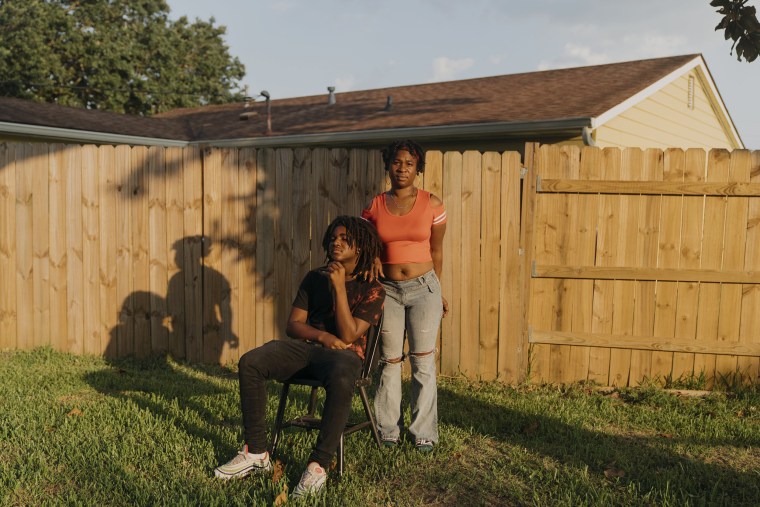
She looked at Tre'mall, taller than her now but still with round cheeks underneath his fronds of dreadlocks.
"I hate those moments of feeling helpless with my children," she said. "I'm supposed to be their superwoman."
"Who shot you, son?" she recalled asking Tre'mall. "He said, 'It was the police.'"
'My son was shot by an officer'
Tre'mall's shooting came just as Louisiana tumbled into the coronavirus pandemic. The day after he was released, Gov. John Bel Edwards issued a stay-at-home order. Life went into limbo as the hospitals around New Orleans filled.
The restaurant in the French Quarter where Tiffany McGee worked as a cook shut its doors. When the governor's order lifted, she took on a new job, a single mother playing the role of amateur detective to ferret out what happened to her son.
She went to the sheriff's office, she said, to try to find her son's phone and make a complaint. She called Internal Affairs, the FBI and the Sheriff's Office, trying to get information as to what happened that night. On sticky notes and the back of envelopes, she saved the names and numbers.
"I've called everyone I needed to call, but I'm not getting any answers," she said. "I'm getting the complete runaround."
On May 27, two months after the incident, she returned to the sheriff's office. In a recording she says she made that day, provided to NBC News, the head of the shooting squad told her he hasn't heard of any shootings.
"We haven't had any officer-involved shootings," the man said. "He was shot with a firearm, not a Taser?"
"A firearm, sir," she told him. "My son has a bullet wound that's never going to go away. At 14 years old. My son was shot by an officer."
A week later, she went back, trying again to speak to detectives and make a complaint. The video of George Floyd's final moments had just gone viral. Closer to home, people were talking about Modesto Reyes, 35, who was fatally shot by Jefferson Parish deputies two days prior. The detective she spoke with told her these things take time.
"There's a lot of moving parts in these kinds of things, especially when it's either a homicide or a shooting or police involved shooting," he said in the audio recording she says she made that day.
Only after that did she get a call from Steven Bradley, a detective who was assigned to the case. He asked her to bring Tre'mall in to give a statement. She took him in the next day.
"I didn't hide behind an attorney," she said. "I came in on my own."
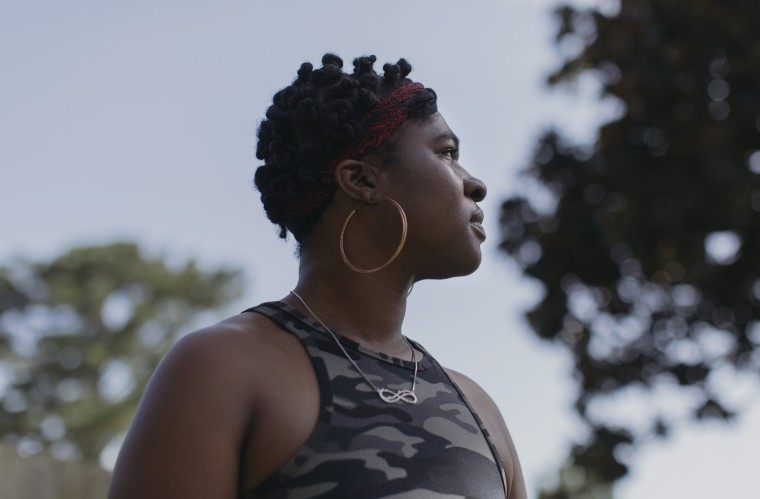
About two weeks later, she received a summons notifying her that the office of Jefferson Parish District Attorney Paul D. Connick Jr. was charging Tre'mall with "resisting by flight." The office declined to comment on the case, citing the state's child privacy laws.
McGee was incensed.
"Before, you all didn't know nothing about the shooting," she said later. "Now you guys want to try to charge him?"
Nijel Simmons, 16, was also charged with "resisting by flight," though his attorneys said prosecutors are reconsidering those charges. The district attorney's office told NBC News it did not bring charges against Ineis O'Quinn, 19, "because of insufficient evidence."
A warrant is out for the arrest of Jacolby Simmons, 18, authorities said. He's wanted on charges of resisting an officer and possession of stolen property, records show.
"THERE'S NOTHING THAT WAS HIDDEN"
On June 23, Sheriff Lopinto held a press conference to address news swirling about the Reyes shooting, which had become a rallying call for some of the protests unfolding around New Orleans. Tre'mall's name had surfaced at protests as well, after an article about his case appeared in Youth Today, a nonprofit news outlet focused on youth, and in the local press.
Tre'mall's shooting happened in the first week of COVID-19, Lopinto explained. An email should have gone out, he said, and all deputy-involved shootings would be announced going forward.
"There's nothing that was hidden," he said. Lopinto added that he didn't know if the media had reported the story or not. "It wasn't something that was on my mind back then."
He said that his office was investigating the incident.
Lopinto also accused the McGee family of hiding behind the lawyers who recently took the family's case, who also represent the Reyes family.
"That kid was in the backyard," Lopinto said. "He knows what happened. Come in and give a statement."
But Tre'mall had, nearly three weeks prior.
"Lopinto is so eager to say that shooting a 14 year old was justified, he doesn't even know that the child had been cooperating," said Christopher Murell, one of the attorneys representing the McGees.
Murell said that an investigative report from Lopinto's office shows that detectives found Tre'mall's shooting was justified because officers believed he was holding a weapon when he stretched his arm.
"They are attempting to say that the officer said his life felt threatened because a child raised his hand," Murell said.
Lopinto has confirmed Tre'mall was unarmed, but that doesn't always make the case clear-cut.
In court and often within departments, the rules around use of force generally fall in an officer's favor. Under a U.S. Supreme Court decision in 1984, Tennessee v. Garner, an officer can legally use deadly force when there's a "reasonable" threat to life.
"The band of error is so wide in the law that to find somebody guilty of a criminal case is very difficult to prove," said Peter Scharf, a criminologist at the LSU School of Public Health.
In the court of public opinion, law enforcement needs to convince residents that its investigations are thorough and fair. That, too, is growing harder as the fissures between police and many communities widen.
"The country is about as polarized as I've seen it," Scharf said. "How does an agency build trust in the aftermath of the use of deadly force?"
Spiller, from the NAACP, said cases like Keevan Robinson's and Tre'Mall McGee's have eroded trust in the legal systems in Jefferson Parish.
"A lot of the Black community believes and feels that there is no justice for us," Spiller said.
Tre'mall, who turns 15 next month, doesn't know what comes next for him in the legal system. His prosecution is on hold for now. According to his lawyers, the district attorney is taking another look at the charges.
Tre'mall says the first thing he does in the sweltering July mornings is wake up, walk downstairs and open the refrigerator. He sticks his left arm inside. The cold air helps the pain from his bullet wound, which throbs in the heat.
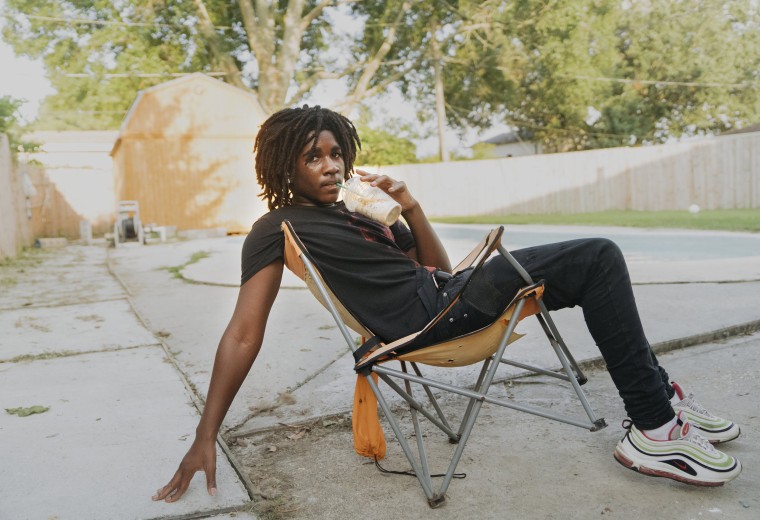
Fragments of the bullet are still lodged in Tre'mall's body — evidence, his mother said, that the sheriff's office still owes her answers.
"I'm fighting just to get you to be accountable for what you did," Tiffany McGee said. "Just take responsibility. That's all I want you to do."
